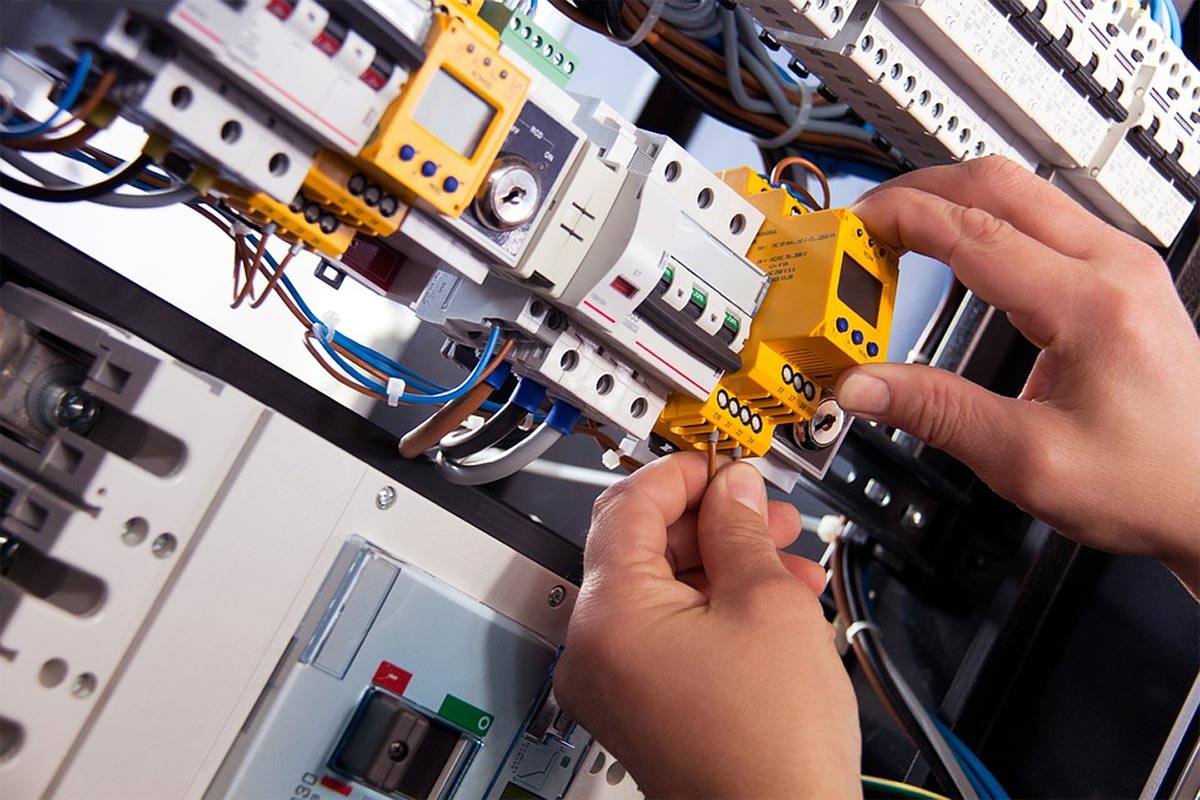
Beginner’s Landlord Guide to EICR
Being a landlord can be very rewarding and fruitful, but it’s not a role that should be taken lightly. When you rent out a property to others, you become responsible for their health and safety, especially when it comes to the integrity of the building itself.
Landlords often overlook the importance of electrical safety, but electrical faults cause 200,000 accidental household fires every single year in the UK. This staggering statistic reveals just how important Electrical Installation Condition Reports are. In this beginner’s landlord guide to EICR, we break down why landlords need to arrange for regular EICRs and the legal obligations surrounding electrical safety.
What is an EICR?
Also known as an Electrical Installation Condition Report, an EICR is a complete assessment of the electrical installations inside a property. The specialist test covers everything from cabling to distribution boards, highlighting the state of every element. An EICR helps landlords to remain compliant with BS 7671 – the national standard for electrical installations.
An EICR must be carried out by a qualified engineer with the right equipment and knowledge. They will identify any issues and assign each with an observation code, based on their severity. These codes are as follows: C1, C2, C3 and F1. Landlords must fix any C1, C2 and FI faults as a matter of urgency, but rectifying all issues is considered best practice.
Legal Obligations for Landlords
Anyone looking to become a landlord must understand their legal obligations when it comes to electrical safety. In June 2020, new Government regulations came into force, making it mandatory for landlords within the private rented sector to have their electrical installations tested by a qualified engineer every five years.
However, more frequent testing is required for older buildings, or those considered high risk. Buildings are considered higher risk if they are at least 18 metres in height or have at least seven storeys.
All landlords must:
- Ensure the electrical installations within their properties are safe
- Ensure any electrical appliances provided are working properly
- Maintain the safety of gas installations within the building
- Ensure any furniture provided in the tenancy is fire safe
Who Needs a Landlord EICR?
So, who needs a landlord EICR? Well, if you own properties that you rent out to others, you have a legal obligation to arrange an EICR at least every five years. This applies to all properties within the rental sector, including terraced houses, flats and Houses of Multiple Occupancy (HMOs).
EICR Observation Codes
Electrical Installation Condition Reports involve various checks and following the inspection, your engineer will assign each electrical element with an observation code. These range in severity and are as follows:
Code C1: This is the most severe observation code. It means there is an immediate threat to the integrity of the building. Fast action is compulsory.
Code C2: This code means there’s a potentially dangerous defect with your electrical system. Urgent corrective work is required.
Code C3: This is a lower-level code defined as ‘Improvement Recommended’. This means a non-regulatory issue has been identified.
Code F1: The FI observation code highlights that further investigation is needed. This means an engineer has found something that needs to be looked at in more depth.
EICR Remedial Works
If any issues are found during your landlord EICR, you will need to arrange for remedial works to be carried out. It’s best practice to rectify all errors, but you should prioritise C1, C2 and FI faults.
Under the Electrical Safety Standards in the Private Rented Sector (England) Regulations 2020, landlords have 28 days to arrange repair works following an EICR. Once repairs have been carried out, another full EICR will be completed, to ensure the maintenance has been completed successfully. Only then will you be issued with a Landlord EICR certificate, which proves compliance.
How Much do EICRs Cost?
The cost of landlord EICRs differs depending on the size and age of the property, or properties, that you own. Companies will generally offer discounted rates for landlords who own multiple houses, or those that rent out large structures with several standalone units inside.
Some electrical companies will also offer weekend and evening appointments, to suit your tenants, while others can arrange for remedial works to be carried out in one go, to avoid disruption for those living at the property.

